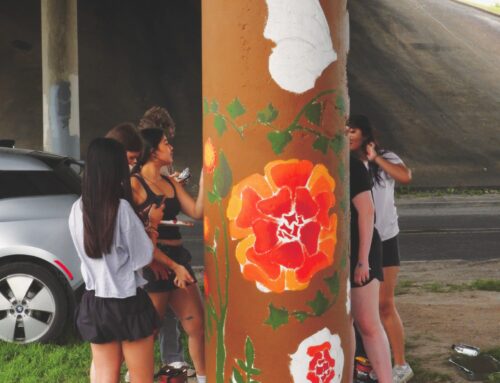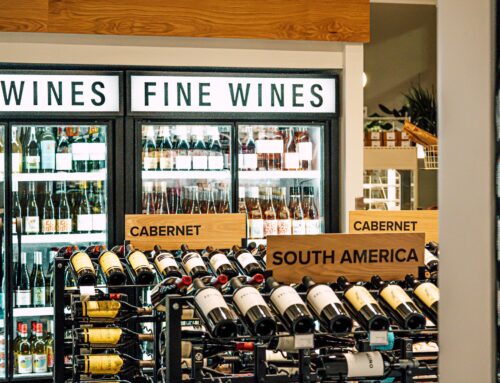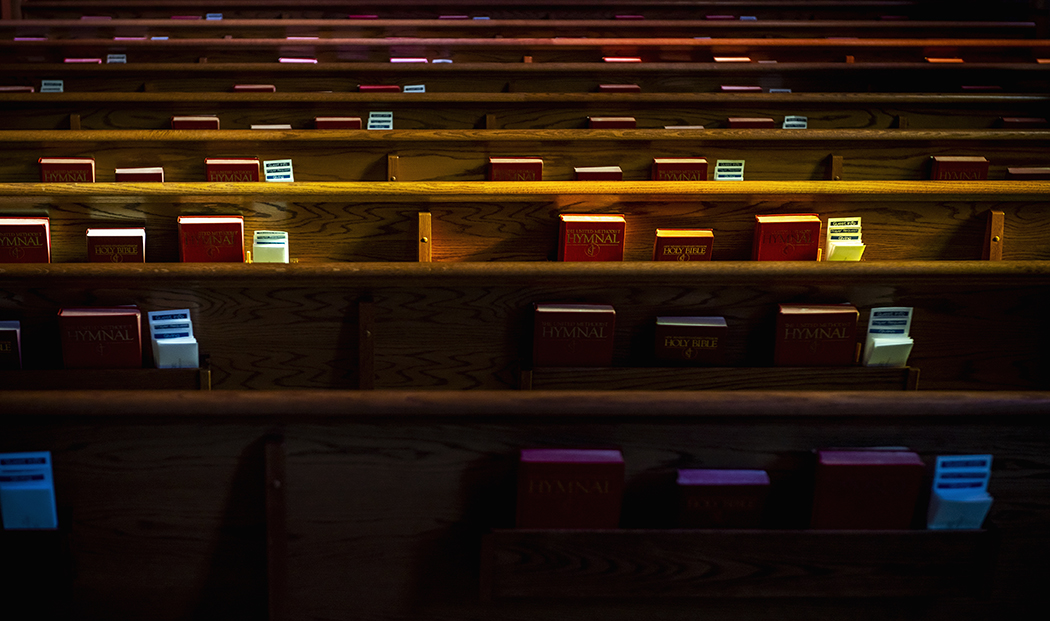
Photography by Danny Fulgencio.
Church ladies can’t always save the day. Thanks be to God, ministers and lay leaders are seeking redemption in new ways, welcoming Buddhists, entrepreneurs, artists and chefs. The result? Churches are finding new life in their communities.
Owenwood United Methodist Church in Far East Dallas looks like a typical church. The 28,000-square-foot building on 7.5 acres at the corner of John West Road and Green Meadow Drive is complete with a bell that calls God’s people to worship and a steeple that points toward heaven. But a once robust congregation of 200 to 300 people dwindled to about 40 when the church was forced to close its doors. In 2017, the church was born again as a farm and neighborhood space thanks to the help of another East Dallas church, White Rock United Methodist.
“We feared the owner of the building would try to sell it, and the church and the neighborhood would lose that space,” says Neil Moseley, director of community engagement at Owenwood and White Rock. “We had all this unused real estate, and almost all churches have a mission of helping their neighbors. The question was, ‘What could we do with it?’”
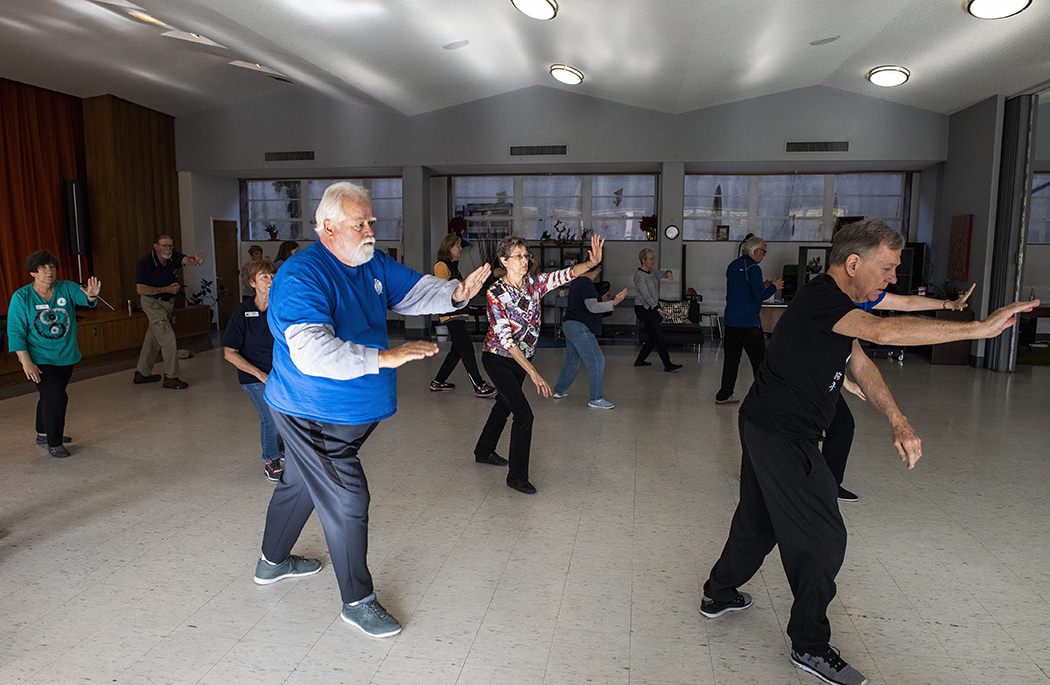
Photo by Danny Fulgencio.
Today, Owenwood serves as a collective of nonprofits like Diapers Etc. that has distributed more than 100,000 hygiene products to the surrounding neighborhoods. The old church is also preparing to launch a senior center, after-school programs and GED classes. But it hasn’t abandoned its original mission — to provide a communal space for people to worship and hear the word of God. Yet even that has changed. The weekly worship service on Tuesday nights takes place around a dinner table, where neighbors can discuss God, faith and the messy parts of life.
Worship, shop or hear music
The experiment at Owenwood has resurrected the campus, but many churches don’t get a second chance — let alone an opportunity to serve the community. Up to 10,000 churches across the country die each year, according to a 2018 report from the Christian publisher LifeWay. That means about 100 to 200 churches will close every week.
Many churches are closing their doors because overall attendance is declining, according to the most recent Religious Landscape Report from the Pew Research Center in 2014. Donations are drying up too. Churches remain one of the primary recipients of annual donations, with 32 percent of Americans giving to religious institutions, according to a survey from the Giving USA Foundation. However, that’s down from 50 percent in 1990.
As attendance and donations decrease, the cost of maintaining large buildings that are only used for a few hours each week becomes unsustainable. For many churches, the choice is simple: change or die.
Selling is often the quickest way to get a church’s financial footing back on solid ground. But converting a religious institution into a secular structure can spark discontent among members who see the church as a sacred neighborhood symbol.
When White Rock Community Church, which now meets at Owenwood, decided to sell its building in 2017, many congregants opposed the developer’s plan to demolish the structure and turn it into an apartment complex. Despite the building’s problems — a broken air conditioner and dilapidated roof — members preferred salvaging the 1960s sanctuary on Garland Road. Instead of apartments, they suggested turning the location into a music venue, shopping center or space for the community to gather.
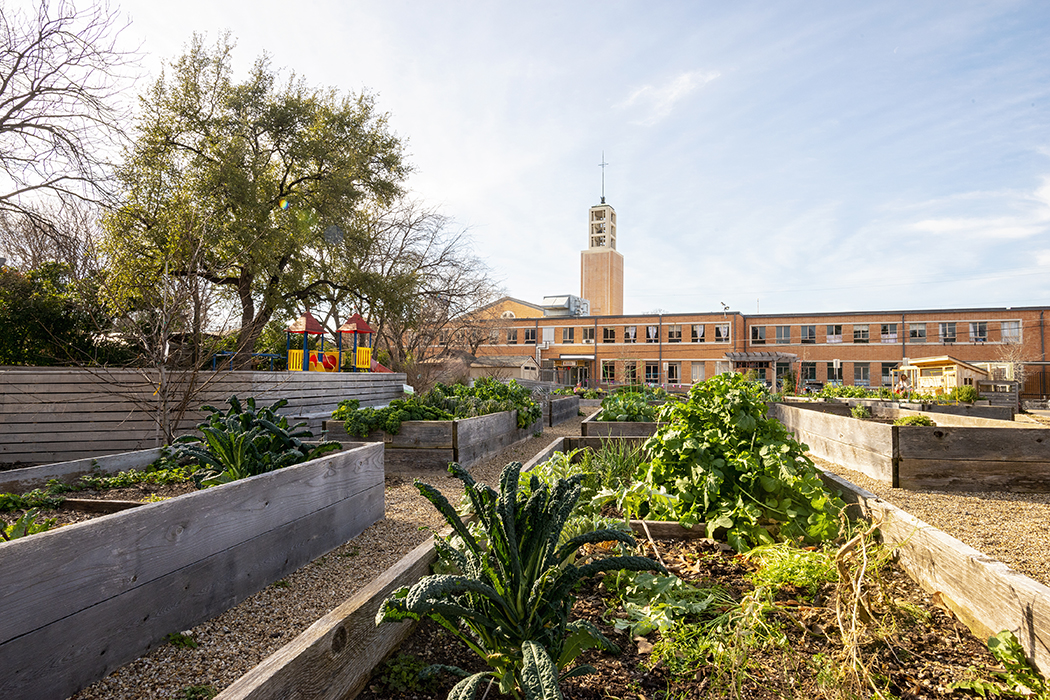
Photo by Danny Fulgencio.
Shutting the doors isn’t the only option for struggling churches. Repurposing religious institutions into neighborhood spaces can help keep a church afloat and thrive.
Such was the case at White Rock United Methodist, situated between Casa Linda and Little Forest Hills. The declining church had lived off an endowment for years until newly appointed pastor Mitchell Boone decided to lease the space to community partners. White Rock United Methodist’s success pioneered a way to revitalize the urban church, and its story has been featured on Fox News and in The Atlantic.
“We did not know that this was going to work,” Boone says. “There wasn’t a book to follow. We just knew we needed to do something. The whole goal was to turn the liability, the size of the church, into our greatest asset.”
White Rock is now home to multiple creative spaces, a children’s center, a group of Zen Buddhists and the nonprofit, Missional Wisdom Foundation, which shares White Rock’s goal of experimenting with different forms of Christian community.
Founder Larry Duggins, who graduated from the Perkins School of Theology at Southern Methodist University, converted White Rock’s 15,000-square-foot basement into a co-working space for entrepreneurs, artists and chefs.
Tenant Sandra Daniels, who owns the bakery Hippos and Hashbrowns, has worked out of the communal kitchen at Missional Wisdom Foundation for a year. Since moving into the space, she’s been able to expand into several commercial accounts throughout East Dallas while continuing to serve clients at the nearby White Rock Farmers Market.
“It’s really encouraging here, and that’s half the battle of running your own business,” Daniels says.
‘We’re unashamedly Christian, but we don’t push’
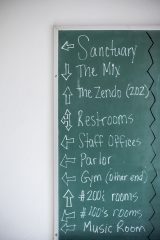
Photo by Danny Fulgencio.
Creating space for neighbors to connect has not only met a community need, it’s had a positive effect on the host congregation. Boone says his flock is more spiritual and hopeful in its new life. The experiment has also allowed congregants to interact with those who may not otherwise go to church.
“Often people have stereotypes about what it means to interact with a church, and we’re doing our best to blow that out of the water,” Duggins says. “We’re unashamedly Christian, but we don’t push. We want people to have a positive experience. Once people feel comfortable in the space, then they ask more about what we’re about.”
After launching the programs at White Rock, Duggins and Boone began helping other churches replicate their success. Missional Wisdom Foundation partnered with Bethesda United Methodist Church, a congregation of about 13 members in Asheville, North Carolina, to create the Haw Creek Commons. The community center not only provides resources to the neighborhood, it also serves as a space for seminary students to gather each summer and learn how to revitalize struggling churches in their own neighborhoods.
“We’re doing these experiments in very different contexts, but in both places, there are people looking for other people to do life together,” says Luke Lingle, a North Carolina native who helped develop the Haw Creek Commons for Missional Wisdom.
Additionally, Boone has met with 50 churches from across the country to share White Rock’s story and encourage programs that have revived his church.
“We found something that works, and folks want to come and figure it out,” Boone says. “But the truth is, it’s all about relationships with the neighborhood.
“The best part of this story is what’s happening at churches like Owenwood. We’re taking a risk again, but that’s what the church is called to do, and that’s the end goal — the transformation of Far East Dallas.”

